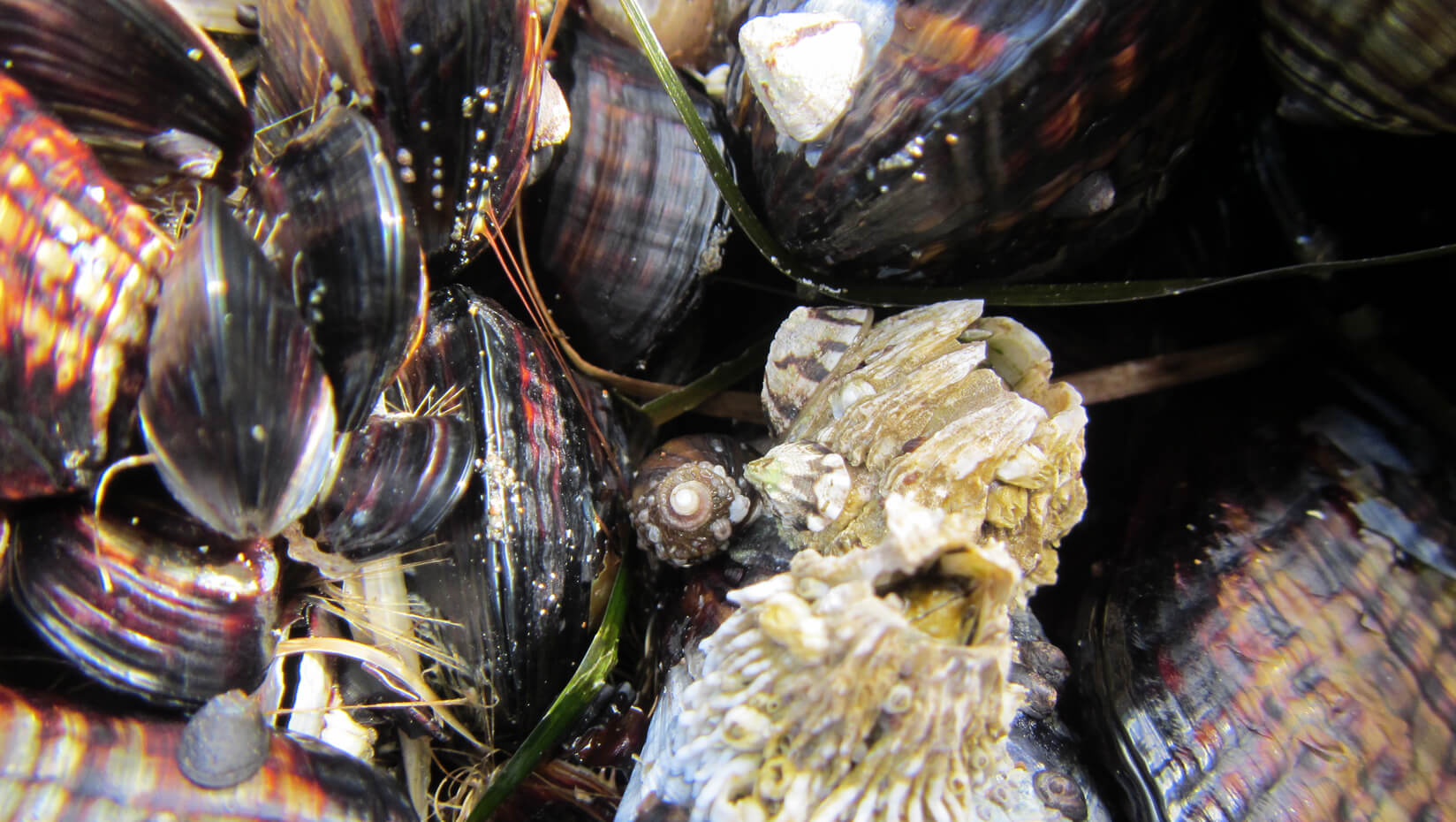
Researcher who discovered decline in blue mussels to talk at DMC
Cascade Sorte, a biologist who documented a massive decline in wild blue mussels in the Gulf of Maine, will present “Global change consequences and coping mechanisms in coastal marine systems” at noon Oct. 6 at the University of Maine Darling Marine Center in Walpole.
Sorte found blue mussels (Mytilus edulis), a foundation species that influences diversity and productivity of intertidal habitats, have decreased by more than 60 percent in the last 40 years. They once covered two-thirds of the intertidal zone but now cover less than 15 percent, she says.
“It would be like losing a forest,” the assistant professor at the University of California, Irvine told the Associated Press in September.
Climate change already has led to widespread changes in coastal marine systems, says Sorte, who has periodically been a visiting researcher at DMC. Recording how marine species have responded thus far to climate change is a step toward understanding how they will — or won’t — survive in the future, when changes in the coastal environment are predicted to accelerate, she says.
“There are several theories why the mussel decline happened — personally I think it is the result of green crabs — but before we can go very far into that line of research we need to know there is a widespread and distinct pattern,” says Bob Steneck, a UMaine professor in the School of Marine Sciences based at DMC. “Cascade Sorte’s work did just that. It will be the foundation for most future research in that area.”
Sorte’s study, which she conducted with UCI colleagues, recently was published in Global Change Biology. The free public talk will be in Brooke Hall, on the lower campus at 193 Clarks Cove Road. Attendees may bring their lunch.
